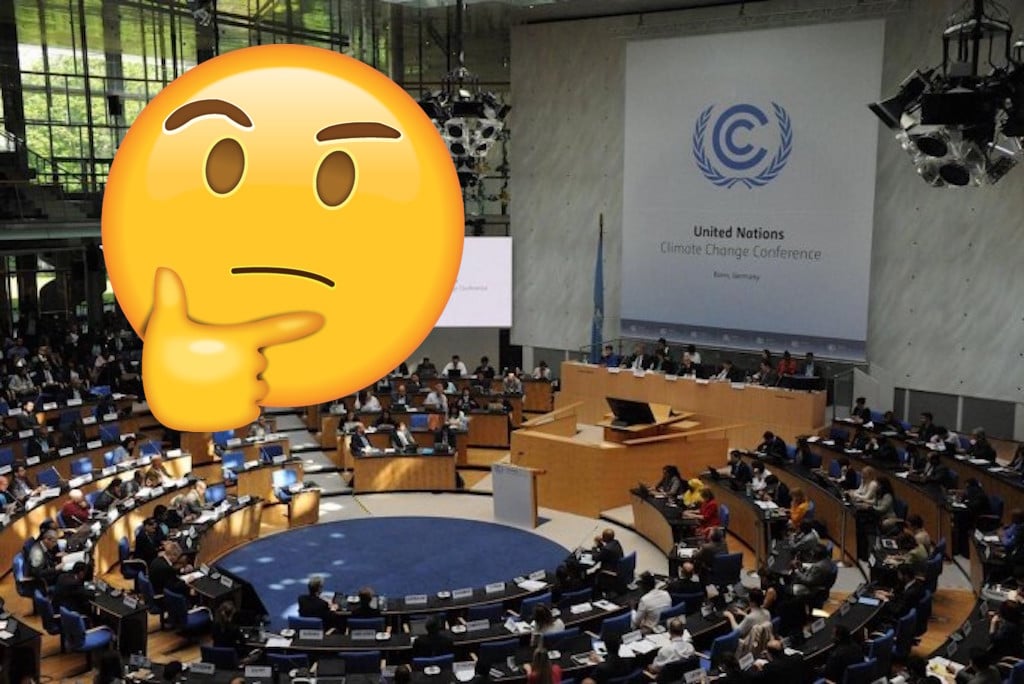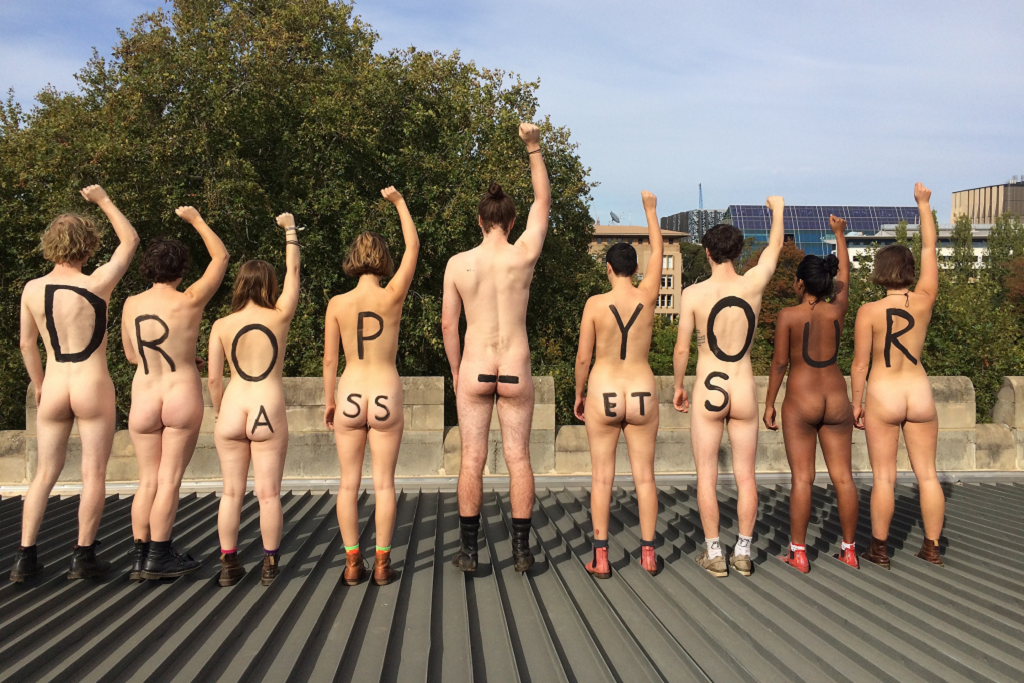The Australian Government Wants Big Oil Companies Involved In Climate Change Negotiations
Why is our government using high-level international meetings to push the interests of ExxonMobil and Shell?

It’s hard to tell from following Australian politics but the world is taking the threat of climate change pretty seriously. Since the Paris Agreement was signed in 2015, delegations from nearly 200 nations have been meeting to thrash out how the world can reduce carbon dioxide emissions before it’s too late. Right now representatives from governments all around the world are meeting in Bonn, Germany, for another round of meetings.
Even though the current Australian government is doing very little on the domestic policy front to tackle climate change — the phrase wasn’t mentioned once in this year’s federal Budget, for example — it still takes part in those global negotiations.
And if you think our government’s approach to climate change is weak on the home front, just wait until you see what they’re up to at the UN.
During a high-level international forum this week, Australian government representatives pushed the interests of multinational oil and gas company ExxonMobil. Up until last year, the CEO of ExxonMobile was Rex Tillerson. He’s now the US Secretary of State, serving under Donald Trump.
So why is Australia using UN climate change negotiations to talk about huge fossil fuel companies with links to the Trump administration?
What Are The Rules Here?
One sticking point in the international discussions so far has been the role played by big fossil fuel companies like ExxonMobil, Shell and BP. Yep, believe it or not these massive corporations who have a vested interest in maintaining the status quo regularly sit in on high-level climate negotiations and lobby international delegates.
Last year a group of developing nations tried to stop those companies from taking part in UN climate change negotiations in Marrakech, Morocco. They argued that the fossil fuel lobby had a conflict of interest. For example, measures designed to curb carbon emissions could impact their profits. But wealthier countries with strong links to the fossil fuel industry, including Australia, squashed those concerns.
In the lead-up to the Bonn talks this week, countries including China and India have again been calling for tighter rules on business groups. They’ve pointed to conflict of interest rules that apply to global tobacco control conferences that ensure policy development isn’t impacted by the “vested interests of the tobacco industry”.
A meeting in Bonn this Tuesday centred on the role played by business lobbyists who represent the fossil fuel industry. It’s an important discussion because no conflict of interest rules currently exist, and this is the first time an international climate negotiation is specifically trying to grapple with the proposal.
While the issue hasn’t been resolved it, it turns out that the strongest supporter of the right of big oil and gas companies to take part in international climate change negotiations is… Australia. Feeling patriotic yet?
Is Australia A Climate Supervillain?
During the meeting this week that focused on the conflict of interest issue, the Australian government’s representative strongly defended the right of fossil fuel companies to participate in global climate negotiations.
The Australian representative said that “some of the companies being alluded to as the polluters of policy” will be “the providers of the biggest and best solutions” to the issue of climate change.
“They have a fundamental and very important role, and to try and construct some artificial conflict of interest from an interest group representing its interests in the spirit of the Paris Agreement, I think is fundamentally misguided and doesn’t understand the concept of conflict of interest,” they said, before going to name ExxonMobil and Shell — two of the world’s biggest polluters — as examples of companies who could be part of the “solution”.
The former CEO of ExxonMobil, Rex Tillerson, is now the US Secretary of State. He’s previously said that “The world is going to have to continue using fossil fuels, whether they like it or not”, and his boss, Donald Trump, doesn’t even believe in climate change.
The concept of global warming was created by and for the Chinese in order to make U.S. manufacturing non-competitive.
— Donald J. Trump (@realDonaldTrump) November 6, 2012
The CEO of Greenpeace Australia Pacific, David Ritter, told Junkee that “It is outrageous and disgusting to imagine representatives of the Australian government would defend such a flagrant conflict of interest. It is possible to imagine that defending such a conflict of interest has to be linked to the kind of hold fossil fuel companies have had on Australian politics for too long.”
“The Australian government must recognise that our national interest and the interest of the Australian people are not the same thing as the destructive vested interests of multinational fossil fuel companies,” Ritter said.
“It’s particularly egregious that after having a reputation for going slow in international climate negotiations, that the Australian representatives would stoop to the new level of actively promoting the ongoing participation of vested interests determined to hold up progress.”
In response to Australia’s intervention, Tamar Lawrence-Samuel from Corporate Accountability International said that “Australia made it clear just whose interests they represent: Big Oil… ExxonMobil and its fossil friends are the problem — their business models depend on this process to fail. We must show them the door and yesterday’s workshop was the first step in that process.”
The other country that strongly defended the right of fossil fuels company to play a role in negotiations was Norway — one of the world’s largest oil exporters.
The Australian government has a reputation for being a strong advocate for the fossil fuel lobby at these kinds of international negotiations. Back home the federal government is heavily backing the coal industry, and is even attempting to change the law to allow a huge new coal mine to be built in Queensland.
So even though we know the Australian government isn’t great on climate policy, it’s pretty extraordinary seeing our representatives argue that companies like ExxonMobile and Shell should be involved at the highest level. Greenpeace’s David Ritter wants the Australian government to defend the principles of conflict of interest.
“The Australian government should be calling for the same standards of propriety and fairness that we would ask of our own public service in Australia. Principles behind conflict of interest rules are well-known and universal and we should be striving to uphold them,” he said.
–
Feature image via UNFCCC/Facebook
–
Osman Faruqi is Junkee News and Politics Editor. You can follow him on Twitter at @oz_f.



